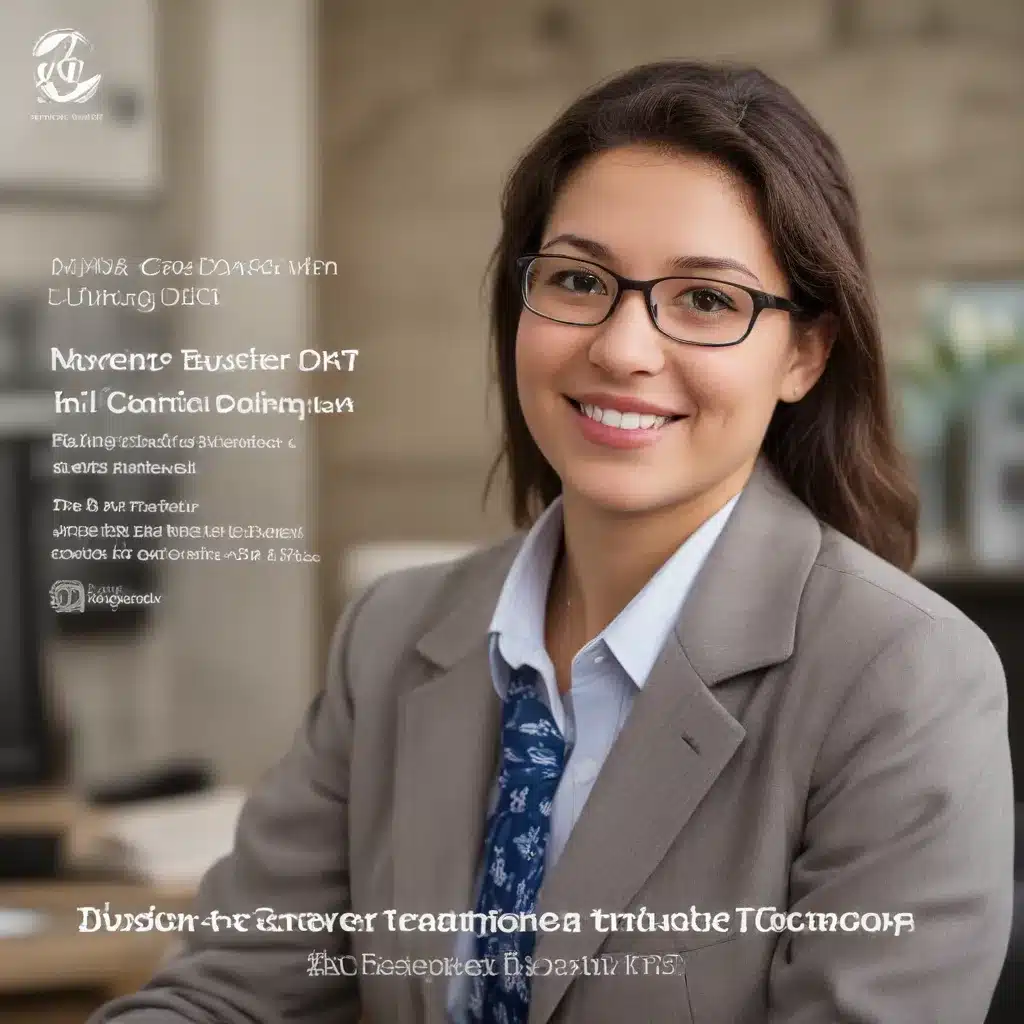
What is DCDT, and How Can It Support Secondary Transition?
The Division for Career Development and Transition (DCDT) is a division of the Council for Exceptional Children (CEC) that promotes national and international efforts to improve career, vocational, and transition services for individuals with disabilities. DCDT’s mission is to provide leadership and support in the areas of career development, vocational education, and transition from school to adult life for individuals with disabilities.
DCDT recognizes that the transition from secondary education to postsecondary opportunities, whether that be further education, training, or employment, is a critical time for students with disabilities. This transition period can be challenging, and DCDT aims to equip educators, families, and students with the knowledge and resources needed to navigate this important phase successfully.
DCDT’s Focus on Secondary Transition
DCDT’s work in the area of secondary transition covers a wide range of topics and initiatives, including:
Transition Frameworks and Research
DCDT has identified several evidence-based frameworks to support best practices in secondary transition, including:
- The Taxonomy for Transition Programming 2.0: This framework outlines five essential components of effective transition programs: student-focused planning, student development, family engagement, program structure, and interagency collaboration.
- The Self-Determined Learning Model of Instruction: This model empowers students to set goals, make decisions, and self-monitor progress towards their transition goals.
- the CIRCLES Framework: This model focuses on building social capital, including relationships, information, and community connections, to support students’ transition to adulthood.
DCDT also disseminates recent research on secondary transition, covering areas such as postsecondary education, employment, independent living, and community participation.
Professional Development Opportunities
DCDT offers a range of professional development resources to help educators, transition specialists, and other stakeholders enhance their knowledge and skills in supporting secondary transition. These include:
- The DCDT International Conference: This annual conference brings together transition professionals from around the world to share best practices, network, and collaborate.
- Online Modules and Webinars: DCDT partners with organizations like the IRIS Center to provide free, self-directed learning opportunities on topics such as transition assessment, self-determination, and postsecondary education.
- Publications and Resources: DCDT publishes a peer-reviewed journal, the Career Development and Transition for Exceptional Individuals, as well as other publications and resources to support effective transition practices.
Collaboration and Partnerships
DCDT works closely with other national and international organizations to promote secondary transition, including:
- Secondary Transition Research & Technical Assistance Centers: DCDT partners with centers that conduct research and provide technical assistance to support the implementation of evidence-based transition practices.
- Vocational Rehabilitation Research and Technical Assistance Centers: DCDT collaborates with centers that focus on supporting the transition of individuals with disabilities to employment and independent living.
By engaging with these diverse partners, DCDT ensures that transition-related resources, research, and best practices are widely disseminated and accessible to those who need them most.
The IRIS Center and DCDT
The IRIS Center, a national center dedicated to improving educational outcomes for all children, including those with disabilities, has a strong partnership with DCDT. The IRIS Center offers a wealth of free, online professional development resources to support secondary transition, including:
- Comprehensive Modules: IRIS modules cover topics such as transition assessment, self-determination, and postsecondary education planning, providing educators with in-depth, self-directed learning opportunities.
- Research Summaries: IRIS shares summaries of the latest research on effective transition practices, helping educators stay up-to-date on the evidence base.
- Strategy Guides: IRIS offers practical guidance on implementing specific transition strategies, such as person-centered planning and teaching self-advocacy skills.
By collaborating with DCDT, the IRIS Center ensures that its transition-focused resources are aligned with the division’s priorities and responsive to the needs of the field.
Engaging in Secondary Transition Professional Development
Educators, transition specialists, and other stakeholders can access a variety of professional development opportunities through DCDT and the IRIS Center to deepen their understanding and implementation of effective secondary transition practices. Some key ways to get involved include:
- Attending the DCDT International Conference: This annual event offers a wealth of learning and networking opportunities, with sessions covering the latest research, best practices, and innovative approaches to supporting students’ transition to adulthood.
- Exploring IRIS Center Modules and Resources: The IRIS Center’s free, online professional development modules provide in-depth, self-directed learning on a range of transition-related topics, from assessment to IEP development.
- Participating in DCDT Webinars and Presentations: DCDT partners with organizations like the IRIS Center to offer webinars and presentations on emerging transition issues and evidence-based strategies.
- Accessing DCDT Publications and Resources: DCDT’s peer-reviewed journal, the Career Development and Transition for Exceptional Individuals, as well as other DCDT publications and resources, can help educators stay up-to-date on the latest research and trends in the field.
By engaging in these professional development opportunities, educators and transition professionals can build their knowledge and skills to better support the secondary transition needs of students with disabilities.
Conclusion
The Division for Career Development and Transition (DCDT) plays a crucial role in promoting effective secondary transition practices and supporting the successful transition of students with disabilities from high school to postsecondary education, training, and employment. By providing access to evidence-based frameworks, cutting-edge research, and comprehensive professional development resources, DCDT and its partners, like the IRIS Center, are empowering educators, families, and students to navigate this critical period with confidence and success.
To learn more about DCDT and explore the resources available, visit the DCDT website or the IRIS Center. Additionally, you can stay up-to-date on DCDT’s upcoming events, such as the Florida DCDT 2024 Annual VISIONS Conference, by visiting the Stanley Park High School website.

